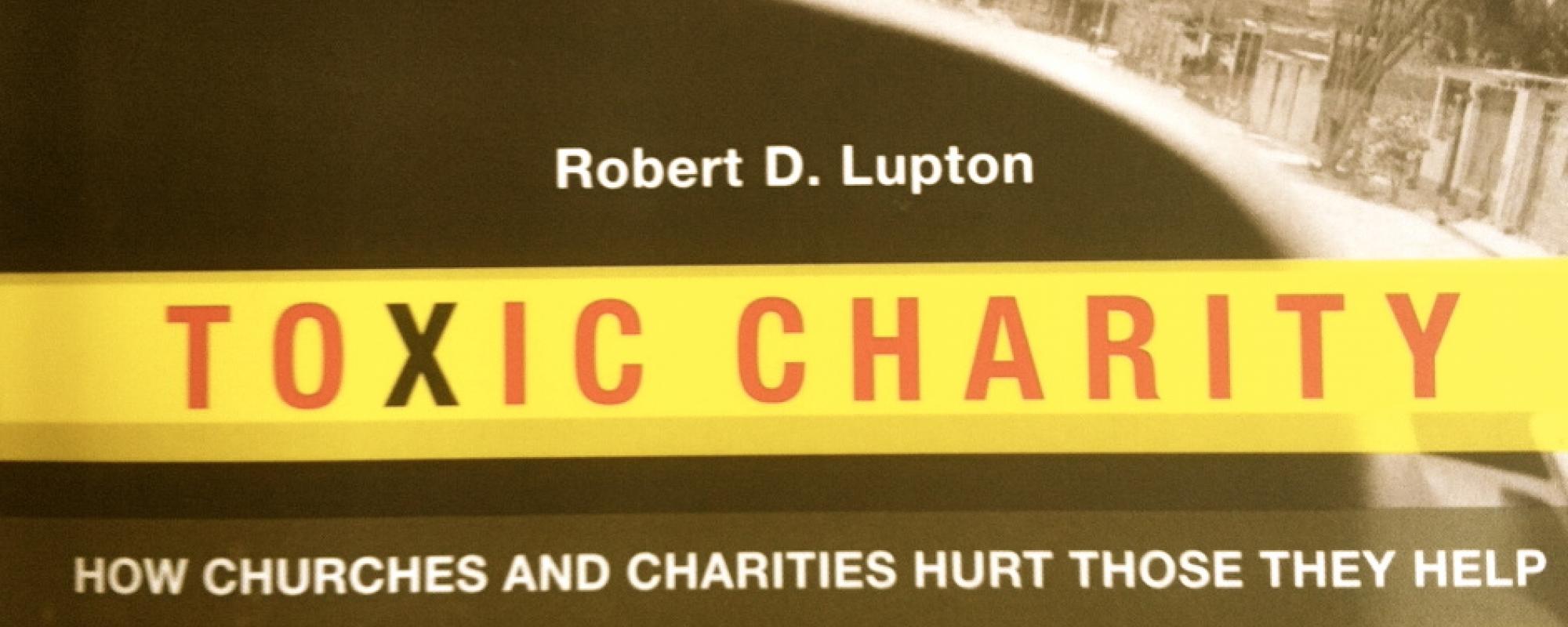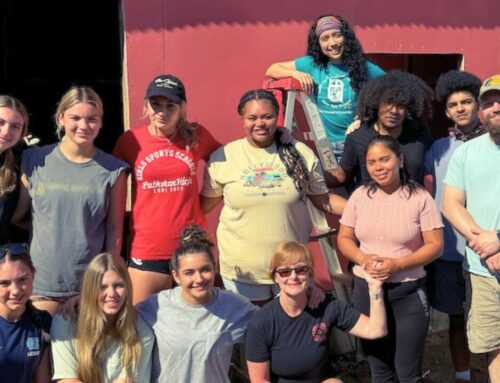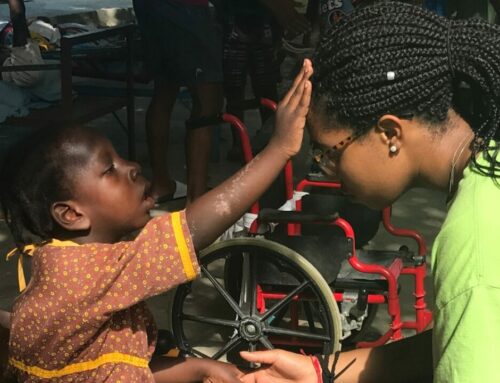“Giving to those in need what they could be gaining from their own initiative may well be the kindest way to destroy people.” Bob Lupton is the founder and President of FCS Urban Ministries and author of “Toxic Charity-How Churches and Charities Hurt Those they Help.”
I first met Bob, though he would never remember me, when I was a young staff with Huntsville (AL) Youth for Christ back in the 70’s. I visited later with my friend Bill McDowell, Bob’s inner city Atlanta ministry. Bob had just moved his family to the inner city to live with the people that God had called him to love.
One of the first stories that Bob told us back in the early 80’s was about a toy drive done by a well meaning group of believers. At the function to pass out the toys to the children living in poverty were of course the church group and the parents of the children. As the church group handed toys to the children Bob noticed the faces of the parents. He could tell that their dignity had been stolen.
“The book explores principles along with practical case studies to examine how we practice charity,” Bob says in the opening chapter of Toxic Charity.
The book offers an “Oath of Compassionate Service.” The oath has six principles:
1. Never do for the poor what they have or could have the capacity to do for themselves.
2. Limit one way giving to emergency situations.
3. Strive to empower the poor through employment, lending, and investing, using grants sparingly to reinforce achievements.
4. Listen closely to those you seek to help, especially to what is not being said–unspoken feelings may contain essential clues to effective service.
5. Subordinate self-interests to the needs of those being served.
6. Above all, do no harm.
Over the course of 20 years of ministry I have seen the best and worst of church groups who have come to serve through us.
In Reynosa and Tecate, Mexico Mission Discovery teams have constructed over 1300 homes in the poorest parts of the city. Families were selected to receive a home after an economic study was conducted by the mayor’s office of each city we worked in. I remember a meeting with one of the mayors staff and her surprise when I required that an adult family member must participate with the team building the house. I explained that the dignity of the family was at stake, and that participating in the home’s construction was a must.
One week a team working on a house told me that the man of the house could loose his job if he helped in it’s construction. Construction hours conflicted with his work hours. In Reynosa, factory jobs are hard to find and there are usually many standing in line for each factory job. I explained to the team the reasoning behind our rule.
The resident told his boss he would be taking off work for 4 days to build his home. The next day he was fired. The team was devastated at the news. I was not a popular guy the morning the news came, but what happened later that day was amazing. The man of the house said, “This was a great job, but God is greater. He will care for my family.” He continued to hammer away with new determination and even pride! The team prayed with him, and there was a different kind of energy on that site. Later that week he found new employment.
We had a request from one of our pastor partners to help in the construction of a feeding center in a needy neighborhood in Mexico. The feeding center would provide meals for children who otherwise would not eat before going to school for the day. It would be fully staffed and paid for by the church. We suggested to the pastor that the top floor be a dormitory for camp retreats or mission teams working in the community alongside the church. The dorm would generate the money for the food for children. Some of our teams helped with the construction. Today the center is fully functional and self sustaining.
In Bulembu, Swaziland the missionary staff there have a policy for teams. The policy is that they allow nothing to be given away in the community. Swaziland has the highest rate of AIDS in the world and an orphan population of over 140,000. The staff of Bulembu Ministries purchased a deserted mining town to house 2,000 of these children. The town has created enterprises that employ people in town and these enterprises generate income that will one day make the town self sustaining. Places I’ve worked where mission groups have given away hats, sunglasses and bandannas, and more, have negatively impacted the community. The next team to arrive after gluttonous give-aways are swarmed with kids who immediately start grabbing at things on your body. The previous team trained them to do that. The white short termers were another round of Santa Clause! In contrast in Bulembu the children and town’s people simply greet you, “Hello Mister Maury, how are you today?” No grabbing at a pair of sunglasses. No playfully snatching a had. We work silently behind the scenes to help restore the town physically to house children in need.
“Toxic Charity” is loaded with stories of successes and errors of church and short term mission charity. I appreciate the approach of “learning and changing” that Bob offers.
Mission Discovery Pre-Field Orientation puts every team leader in touch with material that help prepare them for a trip that protects the dignity of the poor. Every staff member will tell you that they can spot right away the teams that have not prepared. Mission trips must be thoughtful and reciprocal.
We are often asked by pastors if we can organize a teaching trip for them, a mission trip where pastors from the U.S. teach pastors from poor nations. “Only if it is reciprocal. Only if you will sit as a student of a pastors who work in poverty,” is my response. Reciprocal, not “one-way” ministry brings not only dignity, but wisdom. The poor have so much to teach a pastor from the United States.
I would only offer one more suggestion to those who will serve on mission trips this summer not in Bob’s book: Where ever you serve, make sure you are connected with a trusted partner who lives where you will work. Not every short term mission trip agency does that. Connect with those who are able to identify not only the physical needs of those in their community, but the needs of the heart.
“Toxic Charity” a must read before your mission trip! Thanks Bob for good lessons learned.





